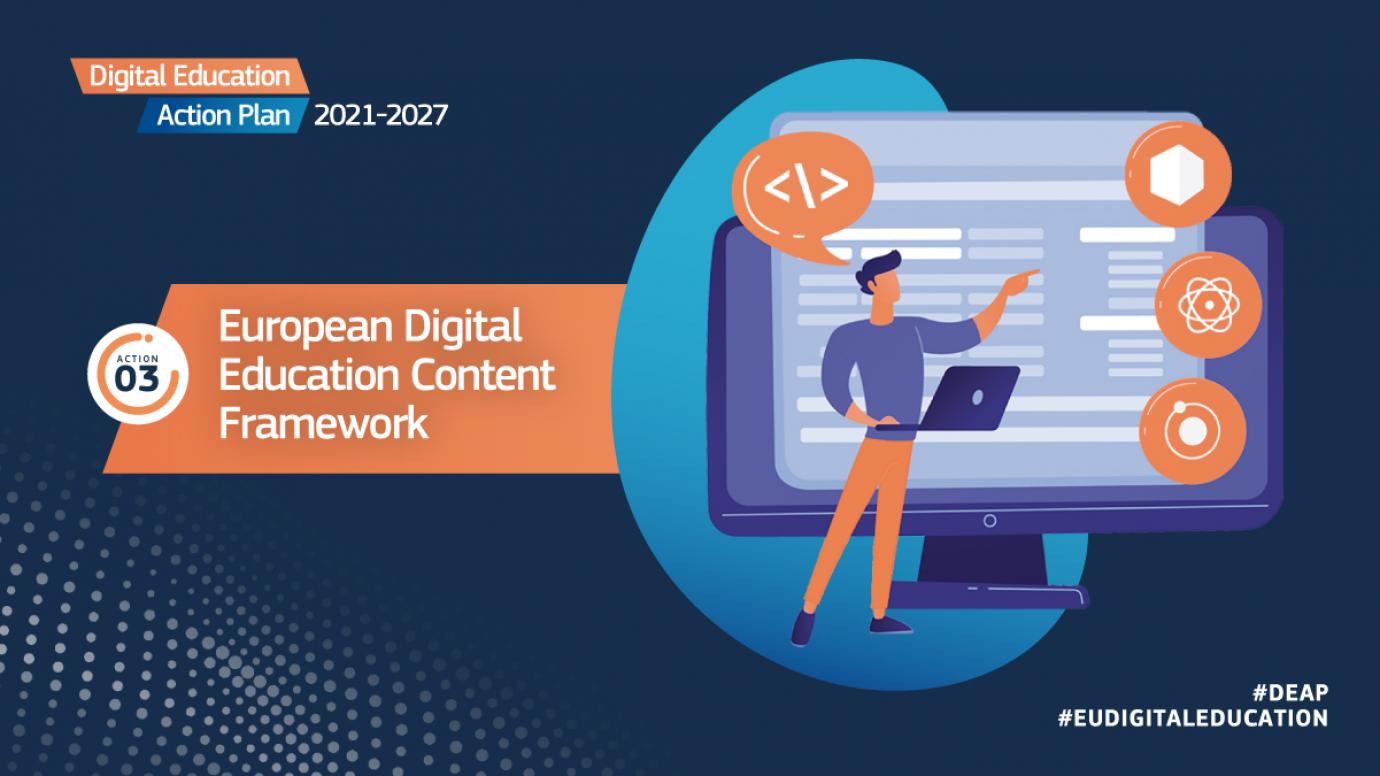European Digital Education Content Framework
Current changes in education
Supply and demand of teaching and learning materials in digital format (or digital education content) have significantly increased in the recent years, especially due to the COVID-19 pandemic.
Significant changes include:
- Habits have changed greatly among digital content suppliers (industry and the public sector) and end-users (teachers, students and pupils).
- Digital education content is more engaging, interactive and embedded in diverse formats and platforms.
- New technological developments are driving the adoption of new types of digital education content and related tools or services. These developments include mobile learning, immersive reality, artificial intelligence (AI) and generative AI.
- New teaching and learning practices (blended learning, microlearning, adaptive and personalised learning) require constant content updates and continuous professional development for educators.
With these changes in mind, the objective of the European Digital Education Content Framework is to address the current challenges of digital transformation in education.
Challenges of the digital transition
A study from September 2023 evaluated the state of play for digital education content. The study presents the following:
- analysis of supply and demand
- proposal for a common definition, developed on the basis of in-depth research and consultations with digital education content users, facilitators and creators
- identification of pedagogical, technological, legal and organisational bottlenecks
- key challenges in developing a digital education content framework at EU level
Addressing these challenges
Since 2022, the European Commission put in place an intensive stakeholder dialogue process. This included bilateral meetings and a community of practice, to ensure that all actors have ownership of the proposed solutions and that their full implementation is achievable.
In November 2023, the Council recommended that EU countries, stakeholders and the European Commission work together to provide quality requirements and create guidelines for better digital education content. This aims to help countries assess and improve the quality, safety, trustworthiness, and inclusiveness of digital education materials.
Working groups
The Commission has set up two working groups on the following topics:
Guidelines for digital education content
The expert group is developing practical guidelines to primarily help teachers and school leaders find, select, acquire, use, and evaluate high-quality digital education content.
The expert group plans to publish the guidelines in 2025.
Higher education interoperability framework
The Digital Education Hub runs a working group of over 130 professionals and experts to develop the framework for higher education interoperability.
The framework seeks to enhance collaboration and efficiency within European universities by establishing common standards and protocols for data exchange in teaching and learning systems.
The working group plans to release the framework by February 2025.
Timeline
-
2022-2023
- Preparatory study contributing to a European Digital Education Content Framework
- Preparatory phase toward the launch of a European exchange platform for Higher Education
-
2024-2025
Set-up of the Digital Education Content Expert Group to provide guidelines, quality requirements and criteria
-
June 2024
Presentation of the framework design, collaboratively created by the Higher Education Interoperability Working Group
-
February 2025
Release of the Higher Education Interoperability Framework



